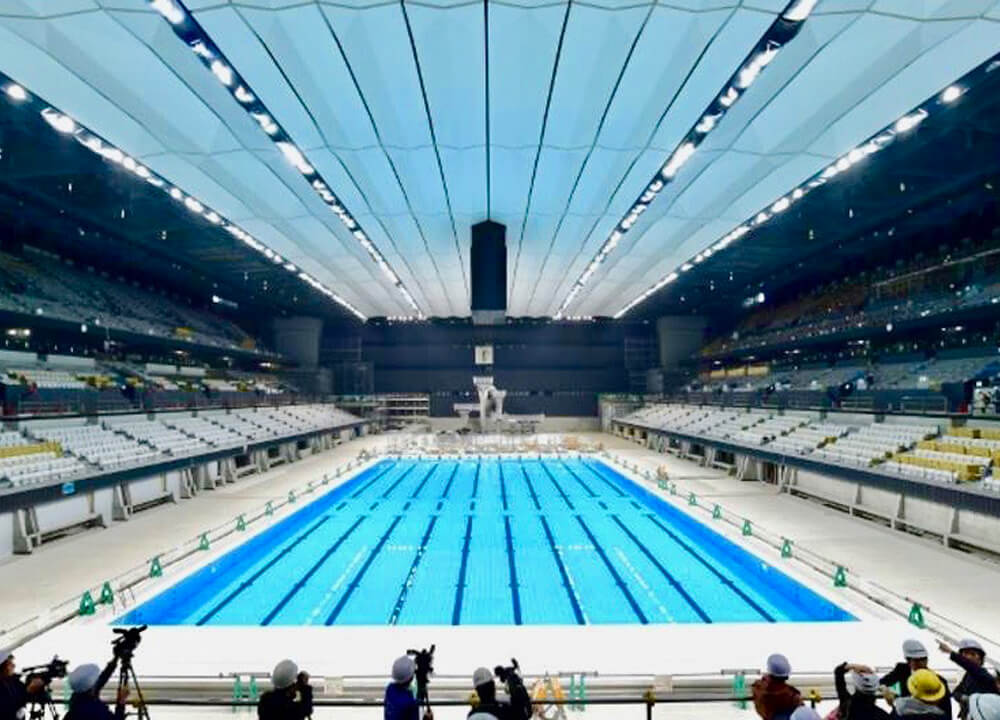Tokyo Olympics Officials Tout Safety at COVID Screening Demonstration

Tokyo Olympics officials Wednesday offered demonstrations of some of its preventative measures for a competition in the world of COVID-19, hoping to assuage fears about next summer’s games.
The organizers held the event at the Big Sight convention complex in Tokyo, home of the media center. Among the measures on display were hand sanitizer dispensers, temperature scanning devices and new innovations, including a sticker that could measure body temperature when placed on the wrist.
“Our objective is to demonstrate what we are doing toward the safety and security of the Olympics,” Tsuyoshi Iwashita, the executive director of the Tokyo Olympics security bureau, told the Associated Press. “… “This time we have tried different methods and analyzed them. I think there is no right answer but we still have to think about what we should do. There are various (sports) competitions going on, but I think the challenge is to find out what kind of method is suitable for the world’s largest sports event — the Tokyo Olympics and Paralympics.”
The demonstration day comes on the last of three days of testing safety measures. The tests also south to measure crowd control with the use of social distancing.
The Tokyo Olympics are slated to begin July 23, 2021. The IOC is preparing contingencies for whether or not a vaccine will be approved and widely available by then. While some sporting events have successfully executed bubble leagues – particularly the NHL, NBA, WNBA and MLS in the United States – the Olympics is a much vaster challenge. The Olympics draws in 11,000 athletes from nearly 200 countries, plus another 4,000 for the Paralympics. Add in officials, judges, coaches, media, staff, trainers, VIPs and all the other big-money guests, and the size of an Olympic bubble would far outstrip anything a domestic league has undertaken. There’s also the issue of intake: Japan has limited the virus to around 1,700 deaths, mainly with strict controls on immigration. That would be out the window during an Olympics.
The notion that a positive test during the Tokyo Olympics could exclude an athlete and wipe out decades of training isn’t exactly a palatable solution.
The organizers will take a hiatus in testing protocols to finalize a plan, then work to optimize that.
“For the testing of security measures, probably this is the last one,” Iwashita said. “As for COVID-19, when we finalize the measures, we want to check these processes. To do so, we will set up further types of testing occasions.”



